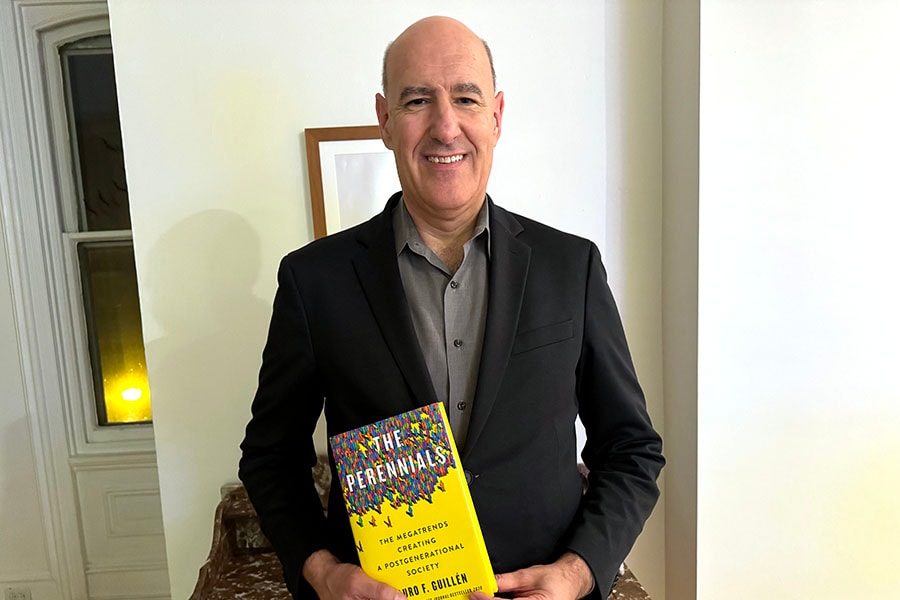
Life is not a series of linear stages defined by age: Mauro F Guillen
In his latest book The Perennials: The Megatrends Creating a Postgenerational Society, author Mauro F Guillén exhorts us to rethink the sequential model of life that has long been almost a norm
 Mauro F Guillén, Author and Vice Dean of the MBA Program for Executives at Wharton School, University of Pennsylvania
Mauro F Guillén, Author and Vice Dean of the MBA Program for Executives at Wharton School, University of Pennsylvania
Governments need to stop classifying people by age group and treating them differently, or segregating them, says Mauro F Guillén. The author of many books, Guillén is also the William H. Wurster Professor of Multinational Management and Vice Dean of the MBA Program for Executives at Wharton School, University of Pennsylvania. Here he talks about the shaping of a post-generational society and its implications for businesses, governments, and society at large.
Q. Could you let us a bit into the book’s back story?
I was giving a zoom seminar during the pandemic. The audience was directors of zoos and aquariums in the US and internationally. They were telling me about how difficult it was to attract people to their parks. Only the grandchildren and the grandparents would go. It dawned on me that the world needed more inter-generational collaboration, more time for generations to spend time together, learning, working, or entertaining themselves.
Q. Who are the ‘perennials’? How different is their course of life?
Perennials are people who don’t think and don’t act their age. They are unconstrained. They learn, they work, and they rest whenever they think is best, moving back and forth between each of those activities. They are the new kind of person that the new economy of the 21st century requires due to technological change and disruption. The economy and companies are asking people to be flexible. But the educational system, the labour market, and the way we structure our lives is far from being flexible. We need a different arrangement that is not the sequential model of life, i.e. first you play, then you learn, followed by work and retirement.







